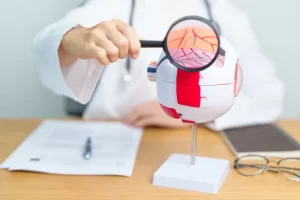
Precision experimentation is the cornerstone of scientific research. Whether you are studying the effects of a new drug or testing the properties of a new material, the accuracy and precision of your measurements can make all the difference in the quality of your results. One tool that can greatly enhance the precision of your experiments is a high-precision pipettor.
A pipettor is a laboratory instrument used to measure and transfer precise volumes of liquid between containers. Pipettors come in a variety of sizes and types, ranging from manual pipettors that require the user to manually adjust the volume to electronic pipettors that can be programmed to dispense a specific volume with high accuracy and precision.
High-precision pipettors are particularly useful for experiments that require precise measurements of small volumes of liquid. For example, if you are conducting a study on the effects of a drug on cells, you may need to dispense very small amounts of the drug to ensure that the concentration is consistent across all samples. A high-precision pipettor can help you achieve this level of consistency and accuracy.
Here are some reasons why every lab should have a high-precision pipettor:
- Improved Accuracy
One of the biggest advantages of a high-precision pipettor is improved accuracy. Manual pipettors can be difficult to use consistently, and even small variations in the angle of the pipettor or the force used to depress the plunger can result in significant errors in the volume dispensed.
Electronic pipettors, on the other hand, can be programmed to dispense a specific volume with high accuracy, ensuring that your measurements are consistent and reliable.
- Increased Precision
In addition to improved accuracy, high-precision pipettors also offer increased precision. Electronic pipettors can dispense volumes in increments as small as 0.1 microliters, allowing you to measure and transfer very small amounts of liquid with great precision. This level of precision is particularly important for experiments that require precise control over the concentration of a substance.
- Time-Saving
High-precision pipettors can also save you time in the lab. Electronic pipettors can be programmed to dispense a specific volume with the touch of a button, eliminating the need to manually adjust the volume for each sample. This can save you a significant amount of time, particularly if you are working with a large number of samples.
- Reduced Risk of Contamination
Manual pipettors can be difficult to clean thoroughly, which can increase the risk of contamination between samples. Electronic pipettors, on the other hand, often come with disposable tips that can be easily replaced between samples, reducing the risk of contamination and ensuring the accuracy and reliability of your results.
- Increased Reproducibility
High-precision pipettors can also improve the reproducibility of your experiments. By ensuring that the volume of liquid dispensed is consistent across all samples, you can eliminate one potential source of variation in your results. This can make it easier to replicate your experiments and verify your findings.
- Versatility
High-precision pipettors are also highly versatile instruments that can be used in a wide range of experiments and applications. They can be used to dispense liquids of varying viscosities, from water-like solutions to highly viscous fluids. They can also be used to dispense liquids of varying volumes, from microliters to milliliters.
- Cost-Effective
While high-precision pipettors may be more expensive than manual pipettors, they can be a cost-effective investment in the long run. By reducing the risk of errors and contamination, high-precision pipettors can help you produce more reliable and reproducible results, which can save you time and money in the long run.
In conclusion, a high-precision pipettor is a valuable tool for any lab that requires precise and accurate measurements of small volumes of liquid. While they may be more expensive than manual pipettors, the benefits they offer make them a worthwhile investment for any lab that values precision and accuracy in their research.







